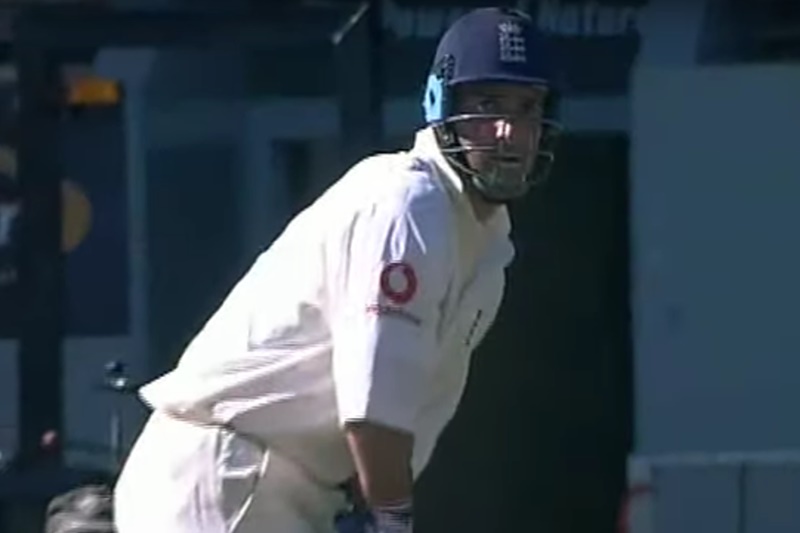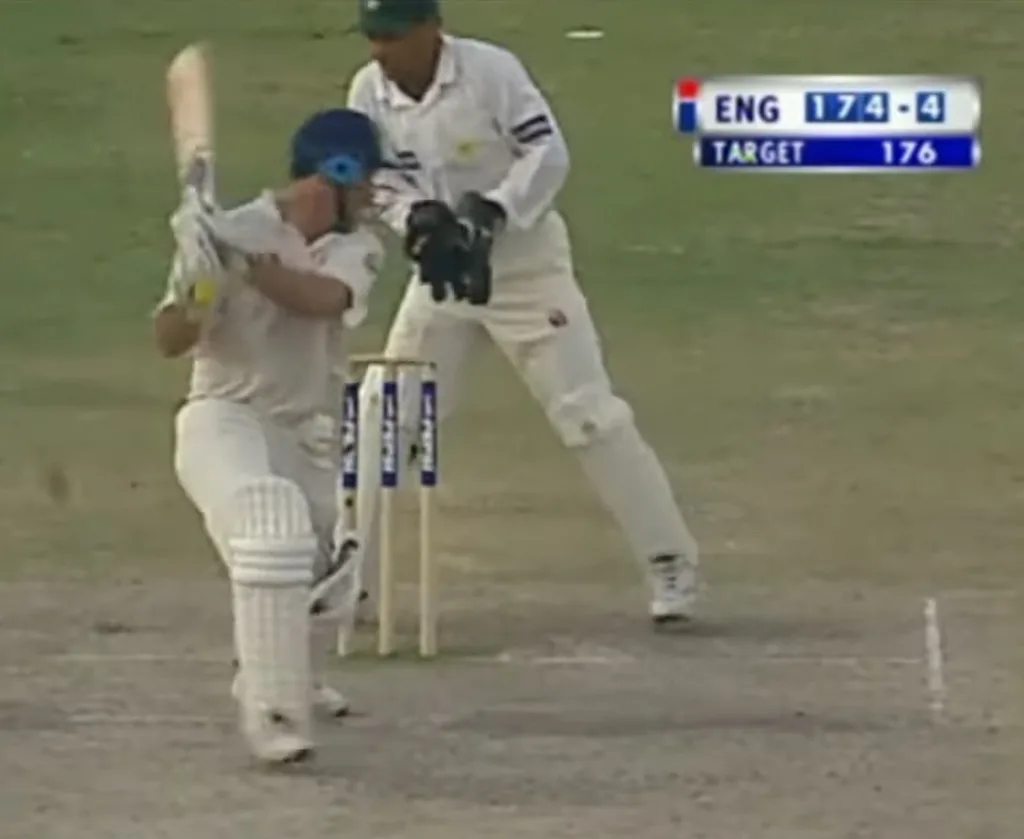4 minute read
A lot of England fans wouldn’t have stayed with Test cricket through the 90s if it hadn’t been for Graham Thorpe. He was a class above at a time when the team – and more importantly the supporters – needed it most. It is profoundly hollowing to hear that he has died at the age of 55.
England lost every single Ashes series from 1989 until that unforgettable triumph in 2005. Graham Thorpe’s career began in 1993 and ran until the very last Test before that 2005 series, against Bangladesh. He made 66 not out and never played again.
If that sounds like criticism by association, it is anything but. What we are highlighting here is the greater challenge of the period that almost exactly spanned Thorpe’s career.
The 1990s
Being an England Test cricket supporter in the 1990s required certain characteristics: defeatism, gallows humour and the ability to make the best of things – but you also needed hope. Without just a smidgen of hope, there is no point watching. Graham Thorpe provided actual legitimate cause for it.
England were 159-5 when he came to the crease in the second innings of his debut, against Australia. At that point they were only 107 ahead. He made 114 not out. A highly likely defeat became a possible victory and ultimately a draw. We don’t know if that sounds like much, but ultimately Throrpe’s efforts kept an awful lot of England fans emotionally invested in a game they’d otherwise have given up on much sooner.
Perform that trick again and again and the impact is considerable. In a grim era, Thorpe was the England batter who kept people interested. Who knows where that interest might have turned without him. Perhaps this website would not exist. The national side was not exactly awash with reliable performers. To give just a flavour of how things were, three other players made their debuts in that same Test: Mark Lathwell, Mark Ilott and Martin McCague.
That’s why Thorpe’s tally of half centuries versus hundreds (39 to 16) was not a measure of how often he ‘failed to convert’ but of how reliably he fulfilled his primary brief of giving the bowlers something to work with.

It is harder to bat well in a poor team, if only because there’s so much more to manage. At a time when scores were often low and England’s were generally lower still, Graham Thorpe averaged 44.66 across 100 Tests. Times have changed to the extent that it is hard to convey just how good that was.
If you look only at the period during which Thorpe was a Test cricketer, the England players who averaged more than him arrived late, during the era of central contracts when the national side belatedly began managing players half-decently. Marcus Trescothick averaged 45.47 in that time; Michael Vaughan averaged 45.02; and Andrew Strauss averaged 55.12. All three made their debuts in the 2000s.
Of those who played in the previous decade, Alec Stewart averaged 40.09; Mike Atherton averaged 38.55; Nasser Hussain averaged 37.76; and Robin Smith averaged 37.36. No-one else who played more than 20 Tests averaged over 35 in that time.
In terms of output and ability, Thorpe was such an outlier that we actually omitted him from our 1990s-est England XI a few years back. Put simply, he was just too good.
Passing the baton in the 2000s
We all know how calendars work, but people aren’t purely talking about time when they refer to England’s cricket in the 1990s. English cricket in the 90s is a whole thing in its own right that spills out beyond the decade itself. We’d actually argue that the 90s didn’t in fact end until that Ashes victory in 2005.
Because of what it was, the era wasn’t going to end of its own accord either. It needed to be actively ended and Thorpe was an absolutely central figure as it was gradually segued out of existence.
First there were the two, big, turnaround overseas victories in the winter of 2000/01. After years of defeat, Nasser Hussain was trying to fashion a team that could actually win and he wasn’t too sniffy about how they set about this.
Nothing exemplified this mentality better than Thorpe’s 118 off 301 balls in the first Test v Pakistan in Lahore. This was one of the most nurdlesome innings of all time, featuring just two fours.
It was also Thorpe who was there in the middle, in the dark, for the series-clinching victory in Karachi, having made 64 not out. He inside-edged the winning runs past his stumps, the ball by this point almost impossible to see.

After Christmas, the same side somehow won in Sri Lanka, despite a longstanding and entirely justified mortal fear of Muttiah Muralitharan.
Thorpe made 59 and 46 in the second Test in Kandy as England levelled the series. He then made 113 not out and 32 not out (out of 74-6) as they won the third and final Test in Colombo.
As England continued to set things in place for a better era, Thorpe remained, gluing it all together. He was there at the other end when Andrew Flintoff hit his first Test hundred, against New Zealand, in 2002. In marked contrast to that Lahore hundred, he was on his way to one of England’s most surprising double hundreds – 200 not out off 231 balls – after England had been 85-4. It wasn’t exactly his fault this didn’t prove the most memorable double hundred of the match.
Statistically speaking, his most successful year was 2004 when he made four hundreds and averaged 73.15. However it wasn’t long after that the slow pass of the baton climaxed with Kevin Pietersen’s selection ahead of him for the first Test of the 2005 Ashes.
It’s striking to us that Pietersen – one of England’s most visibly exceptional batters and a strong contender for an all-time England XI – averaged 47.28 in Test cricket while playing in far, far better sides than Thorpe. Different times, different roles, different men, but the colossal weight of Thorpe’s 44.66 shouldn’t be underestimated.
We were three-quarters of the way through writing this article and our central point was already in place when a friend messaged us out of the blue. He said: “I’m heartbroken about Graham Thorpe. If it wasn’t for him I would have jacked in watching cricket in 94.”







